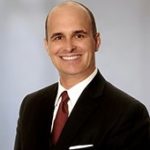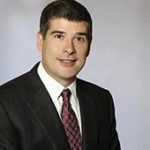By Michael Watts, Paula Trattner and David Solomon



Since 2012, the College of Physicians and Surgeons of Ontario has been engaged in a transparency initiative to provide easy to understand information about Ontario physicians in order to assist patients with making informed choices and to enhance the College’s public accountability. At their Council meeting in May 2015, the College resolved to post a range of additional information on its public register, including criminal charges, cautions-in-person, mandatory continuing education or remediation programs, and licences and discipline findings in other jurisdictions.
These changes represent not only a marked departure from what the College previously posted on the public register, but also from what many hospitals in Ontario currently require physicians to disclose when applying or re-applying for hospital privileges. The is because, historically, the view of many physician advocates was that information such as complaints or criminal charges are inappropriate and unnecessary to disclose unless and until there is a final unfavourable disposition, under the oft-quoted legal maxim that the accused are “innocent until proven guilty.”
MORE: DUTY TO PROTECT HOSPITAL STAFF FROM VIOLENCE IS PARAMOUNT
This argument has historically been extrapolated to extend to pending reviews, investigations, and proceedings, whether by law enforcement, a regulatory college or board, a court or tribunal, or another hospital or healthcare facility. That is why our firm has, for many years, advised our hospital clients to require disclosure of much broader information regarding pending matters, not only annually on re-application forms, but also immediately, to the extent matters arise during the credentialing year. While the above maxim remains true in a court of law, it has perhaps never been true in the court of public opinion, and the needle has now clearly shifted in Ontario in favour of greater transparency of information about physicians (and other regulated health professionals).
![]() Accordingly, hospital boards should now, at a minimum, require immediate disclosure of any information that the College will make public, so that their by-laws are at least harmonized with the current College transparency initiative. Failure to do so would mean hospital boards and their medical advisory committees (MAC) are not necessarily considering publicly available information about physicians when deciding whether to appoint or re-appoint them to the medical staff. This could call into question whether the hospital board and MAC are acting in the best interests of the hospital or otherwise conducting reasonable due diligence on applicant physicians.
Accordingly, hospital boards should now, at a minimum, require immediate disclosure of any information that the College will make public, so that their by-laws are at least harmonized with the current College transparency initiative. Failure to do so would mean hospital boards and their medical advisory committees (MAC) are not necessarily considering publicly available information about physicians when deciding whether to appoint or re-appoint them to the medical staff. This could call into question whether the hospital board and MAC are acting in the best interests of the hospital or otherwise conducting reasonable due diligence on applicant physicians.
Take, for example, the Harmonized Physician Renewal Questions form of the Toronto Academic Health Science Network (TAHSN), which is an annual credentialing form used by many GTA hospitals. Currently, the form does not expressly require disclosure of licences in other jurisdictions and only requires disclosure of criminal charges “which may impact on the safety of the Hospital’s workplace or that may be relevant to the applicant’s a) ability and/or suitability to practice medicine, or b) ability to comply with the Hospital’s Policies.” Similarly, the Northwest Regional Appointment and Credentialing Policy and Procedure used by many northwest hospitals only requires disclosure of criminal proceedings “which may impact the Applicant’s professional practice or responsibilities pursuant to their appointment.”
MORE: THE PERILS OF PRIVACY BREACHES BY HOSPITAL EMPLOYEES
Given the scope of information that now appears on the College’s public register (which includes, for example, all criminal charges of any nature, without qualification), these types of forms and policies have, respectfully, fallen below the standard of disclosure the College is now upholding. Moreover, because hospitals are better positioned than the College to oversee and safeguard the frontline delivery of health care, there is a compelling argument that they should go well beyond the College standard to request immediate disclosure of broader information such as criminal investigations. Indeed, some leading hospitals already do require immediate disclosure of criminal investigations, which is important for investigations that may take a long time to complete (e.g., billing fraud). The need and ability to make follow-up inquiries following disclosure should also be addressed in by-laws. Further, consideration of enhanced disclosure on the College’s public register does not eliminate the need to obtain a Certificate of Professional Conduct in appropriate situations, such as appointment or when concerning information appears on the public register.
Finally, understanding that the consequences of disclosure can be severe, some physicians narrowly interpret their disclosure obligations. In amending their by-laws and application forms, therefore, Hospitals should be detailed and explicit in their expectations, and should specifically require physicians to discharge their disclosure obligations in a “candid, honest, thorough and accurate manner.” This is the standard that the Health Professions Appeal and Review Board applies when reviewing physician conduct during the credentialing process (see Rosenhek v Windsor Regional Hospital, 2009 CanLII 88685 (ON HPARB) at para 18).
Michael Watts is a Partner in the Toronto office of law firm Osler, Hoskin & Harcourt LLP, and is Chair of the firm’s Health Industry Group. Michael can be reached at mwatts@osler.com or at 416-862-6605. Paula Trattner is a Partner in the Toronto office of law firm Osler, Hoskin & Harcourt LLP and a member of the firm’s Health Industry Group. Paula can be reached at ptrattner@osler.com or at 416-862-6495. David Solomon is an Associate in the Toronto office of law firm Osler, Hoskin & Harcourt LLP and is a member of the firm’s Health Industry Group. David can be reached at dsolomon@osler.com or at 416-862-4200.


